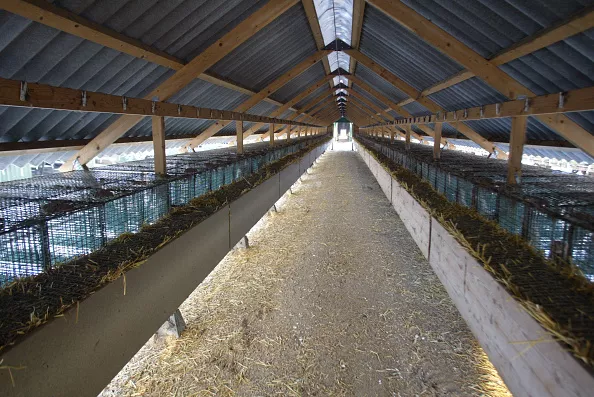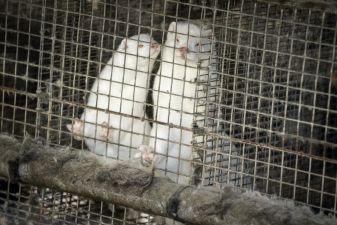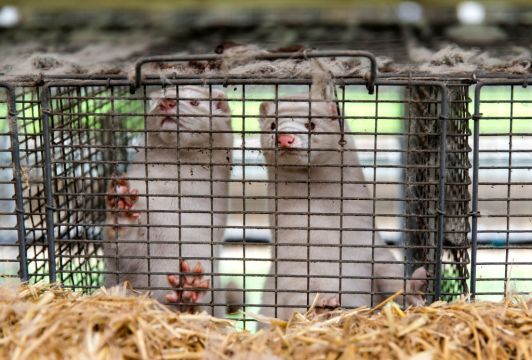Updated: 20.31
The discovery of a new strain of Covid-19 in Danish mink has sparked calls for humane culling of the animals in Ireland.
Speaking this evening at a Department of Health briefing, Dr Cillian de Gascun of the National Virus Reference Laboratory said the issue should not yet spark major concern in the Republic.
“It’s far too early to be overly concerned, but I think at a worst case scenario perspective, you’re potentially starting a vaccination programme with a mutant that is potentially resistant to the antibodies that the vaccines are going to elicit," he said.
"That’s the worst case scenario, so I think it’s really important what the Danish authorities have done.”
Denmark is now undertaking a massive cull of up to 17 million mink.
Outbreaks where the virus appears to have spread from animals to humans have been detected in six EU countries.
Cull call
Veterinary Ireland (VI) has said it would be prudent to dispose of the animals under the supervision of Department of Agriculture officials.
Dr Mark d’Alton, who was involved in the VI campaign to end the practice, told The Irish Times that it “would be urging that on the precautionary principle, and bearing in mind that fur farming is going to be phased out anyway . . . that they should be humanely killed and the whole process expedited. That would be wise.”
In June 2019, the Department of Agriculture, Food and the Marine announced the phasing out of fur farming, saying the practice is “counter to good animal welfare”.
No infections have so far been linked to the three fur farms operating in Ireland.
The mutation in the virus was found in 12 people in the northern part of Denmark.
The country's health minister, Magnus Heunicke, said half the 783 human Covid-19 cases in northern Denmark “are related” to mink.
More mink is produced in Denmark than anywhere else. The mutated strain of Covid has led to the effective lockdown of several towns in an attempt to halt its spread.
The situation has prompted a ban on travel from Denmark into the UK.
In Ireland, the Government has said that until further notice passengers arriving from Denmark are requested to self-isolate for 14 days.
The Department of Agriculture said it has maintained contact with Irish mink farms and while a testing regime is to be implemented, no Covid cases have been identified to date.

Mink risk
Mink, similar to ferrets, cats and dogs, are more susceptible to contracting the coronavirus, posing a risk they could mutate the virus and return a variant to humans.

“Since June, the Danes had implemented a phased response to controlling the spread of the disease with a limited cull of infected [mink] farms,” said the department. “The recent developments in Denmark in relation to potential impact on future vaccine efficacy is of concern.”
It said it has written to mink farms in Ireland on a number of occasions this year and provided information on Sars-CoV-2 infection and biosecurity measures to prevent mink being exposed to the virus.
Dr Ann Moore, from the school of biochemistry at University College Cork, said there would hopefully not be any implication for vaccine development but that it was important to eliminate the source.
“The worry is that that virus will be more deadly or will transmit more easily from person to person and secondly that a vaccine would not protect against [it],” she told RTÉ radio on Monday.







